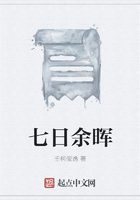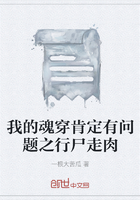虽然这样,我也不会放弃早晚要这么做的想法;因为,就算现在,每当我跟任何有识之士交谈时,对于种种清新美妙的节奏、丰富多彩的语言、哀婉动人的笔触以及真实、新颖而大胆的想法,我都能为我的信念赋予一种理由,但此时此刻,我却是在跟你——生平第一次跟你本人谈话呀,我不由得心神激荡。
前面我已经说过自己真的是从内心深处喜欢这几本诗集,而且我也爱你。有一次,我几乎就要看到你了——是亲眼看到你,你知道吗?有天早上,凯宁先生问我:“您想和芭蕾特小姐见面吗?”然后,他就进去通报——过一会儿,他回来了……但你的身体很不舒服。现在,这件事已经过去很多年了,我觉得自己就像是在一次充满冒险的旅途中,距离一个旷世奇观(在一座教堂或地下墓窟里)已经非常非常近了,要想进去的话,只要揭开门帘就可以了,可还差那么一点点。现在看来,这么一点点的隔阂就足以挡住去路了,所以,那虚掩的门户一下子重新关上,我只好再一次从千里之外踏上回家之路。难道我就再也没有机会看到那道风景了吗?
好了,今天因为读到了你的诗集,我由衷地感到愉快、骄傲和感激。
永远忠实于你的
罗伯特·勃朗宁
1845年1月1日
于瑟雷郡哈查姆县
verse [v:s] n. 韵文;诗节;歌曲的段落
Not all verse is great poetry.
并非所有的韵文都是伟大的诗篇。
complimentary [kmplimentri] adj. 恭维的;表示钦佩的;赞美的
Everyone had been most complimentary about the costumes.
大家对这些服装赞不绝口。
affluent [鎓lunt] adj. 富裕的;丰富的;流畅的
It has long history and affluent contents.
它有着悠久的历史和丰富的内涵。
exquisite [ikskwizit] adj. 精致的;剧烈的;雅致的
He has exquisite tastes and manners.
他有高雅的情趣和举止。
我现在绝不是在给你写一封随随便便的恭维信,它绝非为了敷衍,也绝非顺口夸耀你的才华,它的确是我心悦诚服的自然流露。
于是,你那些生机勃勃而格调高雅的诗,就被我吸收和消化了,就像一朵鲜花在我心田扎根、生长。
现在,这件事已经过去很多年了,我觉得自己就像是在一次充满冒险的旅途中,距离一个旷世奇观(在一座教堂或地下墓窟里)已经非常非常近了,要想进去的话,只要揭开门帘就可以了,可还差那么一点点。
...I should be able to tell you of their effect upon me, for in the first flush of delight I thought I would this once get out of my habit of purely passive enjoyment.
be able to:能;会;能够胜任(强调有能力)
Perhaps even, as a loyal fellow—craftsman should, try and find fault and do you some little good to be proud of hereafter!
be proud of:以……自豪;因……感到满意
波西·比希·雪莱致伊丽莎白·西琴勒
Percy Bysshe Shelley to Elizabeth Hitchener
波西·比希·雪莱(1792-1822),英国文学史上最有才华的抒情诗人之一。 雪莱与济慈年龄相仿,对济慈也特别照顾。1821年,当雪莱接到济慈病逝的噩耗时,悲痛万分地写了著名的挽歌《天主》(Adonais)。更为不幸的是,1822年,雪莱在与另一位文坛巨星拜伦约会的途中遭遇风暴,船毁人亡,年仅29岁。也许是天妒英才,一颗文学巨星就这样陨落。
Dear Elizabeth,
Your letter of the 1st hath this moment reached me. I answer it according to our agreement, which shall be inviolable. Truly did you say that, at our arising in the morning, Nature assumes a different aspect. Who could have conjectured the circumstances of my last letter? Friend of my soul, this is terrible, dismaying: it makes one's heart sink, it withers vital energy... Dear being, I am thine again; thy happiness shall again predominate over this fleeting tribute to self-interest. Yet who would not feel now? Oh, it were as reckless a task to endeavour to annihilate perception while sense existed, as to blunt the sixth sense to such impressions as these! —Forgive me, dearest friend? I pour out my whole soul to you. I write by fleeting intervals: my pen runs away with my senses. The impassionateness of my sensations grows upon me. Your letter, too, has much affected me. Never, with my consent, shall that intercourse cease which has been the day-dawn of my existence, the sun which has shed warmth on the cold drear length of the anticipated prospect of life. Prejudice might demand the sacrifice, but she is an idol to whom we bow not. The world might demand it; its opinion might require, but the cloud which flees over yon mountain were as important to our happiness, to our usefulness. This must never be, never whilst this existence continues; and when time has enrolled us in the list of the departed, surely this friendship will survive to bear our identity to heaven. What is love, or friendship? Is it something material—a ball, an apple, a plaything—which must be taken from one to be given to another? Is it capable of no extension, no communication? Lord Kaimes defines love to be a particularization of the general passion. But this is the love of sensation, of sentiment—the absurdest of absurd vanities. It is the love of pleasure, not the love of happiness. The one is a love which is self-centered, self-devoted, self-interested. It desires its own interest; it is the parent of jealousy. Its object is the plaything which it desires to monopolize. Selfishness, monopoly, is its very soul, and to communicate to others part of this love were to destroy its essence, to annihilate this chain of straw. But love, the love which we worship—virtue, heaven, disinterestedness—in a word, Friendship—which has as much to do with the senses as with yonder mountains, that which seeks the good of all— the good of its object first, not because that object is a minister to its pleasures, not merely because it even contributes to its happiness, but because it is really worthy, because it has powers, sensibilities, is capable of abstracting itself, and loving virtue for virtue's own loveliness—desiring the happiness of others not from the obligation of fearing hell or desiring heaven: but for pure, simple, unsophisticated virtue. You will soon hear again. Adieu, my dearest friend. Continue to believe that when I am insensible to your excellence, I shall cease to exist.
Yours most sincerely, inviolably, eternally,
Percy Bysshe Shelley
Chestnut Cottage, Keswick
Tuesday, Nov. 12nd, 1811
亲爱的伊丽莎白:
刚才收到你1号的来信,我按我们之间的协议回信,这个协议是不能违背的。你确实说过,早上我们起床时,大自然总会呈现出不同的面貌。谁能猜得到我写上一封信时的心境呢?我心灵的知己,这真可怕,让人沮丧,锐气尽消……亲爱的人,我又属于你了,你的幸福又将压倒我短暂的孤芳自赏。然而在这种时候,谁又感觉不到呢?啊,如果一息尚存却对它置若罔闻,就像让第六感对这种印象反应迟钝一样,都是鲁莽的。——最亲爱的朋友,原谅我吧,我已把我的整个心奉献给你了。思绪飞转,令手中之笔无力倾诉,但激情终于宣泄而出,你的信也起了作用。我认为我们将永远不会停止彼此的交往,这种交往给我带来了生命的曙光,这温暖的阳光洒在我冷清而漫长的人生之旅上。偏见可能要求人们作出牺牲,但我们不会屈服于这个幽灵;世俗可能要我们作出牺牲,舆论也会有所要求,但遥望远方那翻山越岭的云朵也会感到快乐,它将为身心带来好处。只要还有一口气在,就永不屈服,决不低头;即使生命将尽,人间情侣也要相聚在天堂。














